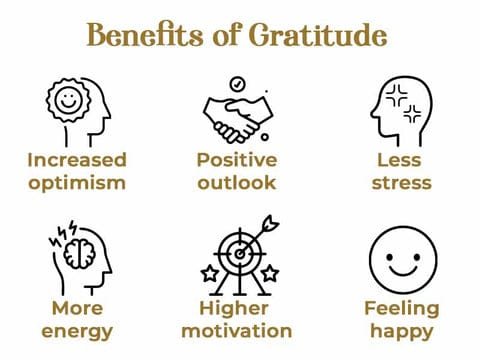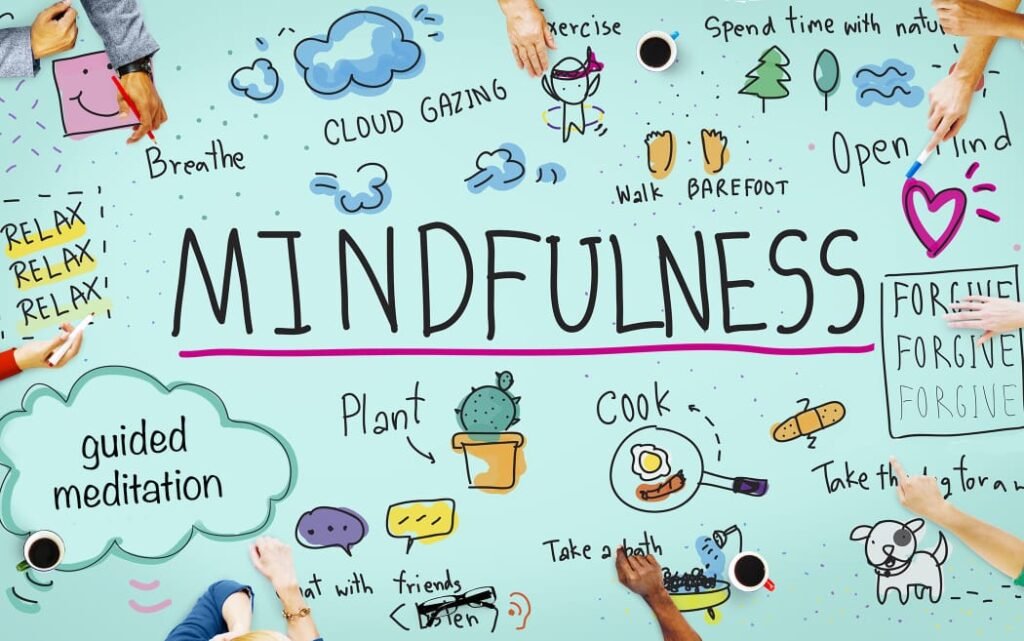
Gratitude is a powerful emotion that can transform our lives, improve our mental health, and deepen our connections with others. However, in our fast-paced world, it’s easy to overlook the small blessings and focus on the challenges. Cultivating gratitude isn’t just about saying “thank you” but involves a conscious effort to recognize and appreciate the positives in our lives. In this blog, we’ll explore the concept of gratitude, why it’s essential, and practical steps to cultivate it in our daily lives.
UNDERSTANDING GRATITUDE

As we have heard the saying “GRATITUDE SWEETENS EVEN THE SMALLEST MOMENTS”.Gratitude is the feeling of appreciation for what we have, whether tangible or intangible. It involves recognizing the goodness in our lives and acknowledging that this goodness often comes from outside ourselves. It’s a recognition of the gifts, big and small, that life offers us, and an appreciation for the people, experiences, and circumstances that contribute to our well-being.
Gratitude is more than just a fleeting feeling; it is a way of seeing the world. When we cultivate gratitude, we shift our focus from what we lack to what we have. This shift in perspective can have profound effects on our mental, emotional, and physical health.
The Benefits of Practising Gratitude

Before diving into how to cultivate gratitude, it’s important to understand why it’s worth the effort. Numerous studies have shown that gratitude has a wide range of benefits:
1.IMPROVED MENTAL HEALTH:-
Gratitude is linked to lower levels of depression and anxiety. When we focus on the positive aspects of our lives, it can help counteract negative emotions and thoughts.
2.Enhanced Physical Health:
People who practice gratitude regularly are more likely to take care of their health, exercise more often, and get regular check-ups. Gratitude is also associated with better sleep and lower levels of stress.
3.Stronger Relationships:
Gratitude strengthens relationships by promoting positive interactions and fostering a sense of appreciation. When we express gratitude to others, it reinforces our connections and encourages mutual support.
4.INCREASED RESILIENCE:-
Gratitude helps us build resilience by focusing on what’s going well in our lives, even during challenging times. This positive outlook can help us bounce back more quickly from adversity.
5.Boosted Self-Esteem:-
When we are grateful for what we have, we are less likely to compare ourselves to others. This can lead to higher self-esteem and a greater sense of contentment.
Practical Ways to Cultivate Gratitude in Daily Life
Now that we understand the importance of gratitude, let’s explore some practical ways to cultivate it in our daily lives.
1. Keep a Gratitude Journal

One of the most effective ways to cultivate gratitude is by keeping a gratitude journal. Each day, set aside a few minutes to write down three to five things you are grateful for. These can be simple things like a warm cup of coffee, a kind word from a friend, or a beautiful sunset. The act of writing helps solidify these moments in your mind and allows you to reflect on them.
Over time, this practice can help you develop a habit of noticing and appreciating the positive aspects of your life, even on difficult days. The key is consistency. By making it a daily habit, you train your brain to focus on the positive, which can lead to a more grateful and content mindset.
2. Express Gratitude to Others

Another powerful way to cultivate gratitude is by expressing it to others. Whether it’s a heartfelt thank you to a colleague, a note of appreciation to a friend, or a simple “thank you” to a stranger who held the door for you, expressing gratitude strengthens relationships and spreads positivity.
Make it a point to acknowledge and thank the people who contribute to your life. You might be surprised at how much it lifts your own spirits as well as theirs. This doesn’t have to be a grand gesture; even a small acknowledgment can make a big difference.
3. Practice Mindfulness

Mindfulness is the practice of being fully present in the moment. When we are mindful, we are more aware of our surroundings, our thoughts, and our emotions. This heightened awareness can help us notice and appreciate the positive aspects of our lives.
To practice mindfulness, set aside a few minutes each day to focus on your breath, your senses, or the present moment. As you do, try to notice the things you might normally overlook—the warmth of the sun on your skin, the sound of birds chirping, or the taste of your morning coffee. By being more mindful, you can cultivate a deeper sense of gratitude for the simple pleasures in life.
4.REFRAME NEGATIVE EXPERIENCES

Life is full of challenges and setbacks, but even in difficult times, there is often something to be grateful for. By reframing negative experiences, you can shift your focus from what’s wrong to what’s right.
For example, if you’re going through a tough time at work, instead of dwelling on the stress, try to focus on what you’re learning from the experience or how it’s helping you grow. If you’re dealing with a personal loss, try to focus on the positive memories you shared with that person or the support you’re receiving from others.
This doesn’t mean ignoring or suppressing negative emotions; it’s about finding a balance and recognizing that even in the midst of difficulty, there can be things to be grateful for.
5. Create a Gratitude Ritual

Incorporating gratitude into your daily routine can help make it a habit. One way to do this is by creating a gratitude ritual. This could be something as simple as saying a few words of thanks before each meal, reflecting on what you’re grateful for at the end of each day, or starting your morning with a gratitude meditation.
Find a ritual that works for you and make it a regular part of your day. Over time, this practice can help you develop a more grateful outlook on life.
6. Volunteer and Give Back

Helping others is a powerful way to cultivate gratitude. When we give our time, energy, or resources to those in need, it not only benefits others but also reminds us of the blessings in our own lives.
Volunteering can be a humbling experience that helps us put our own challenges into perspective. It can also foster a sense of connection and purpose, both of which are closely linked to gratitude.
Look for opportunities to give back in your community, whether it’s through volunteering, donating to a cause you care about, or simply helping a neighbor. The act of giving can help you cultivate a deeper sense of gratitude for what you have.
7. Practice Self-Compassion

Gratitude isn’t just about appreciating what’s outside of us; it’s also about being kind to ourselves. Practising self-compassion means treating yourself with the same kindness and understanding that you would offer to a friend.
When you make a mistake or face a challenge, instead of being overly critical, try to approach the situation with compassion and gratitude. Recognize that you’re doing your best and that each experience, whether positive or negative, is an opportunity to learn and grow.
By cultivating self-compassion, you can develop a more positive and grateful attitude towards yourself, which can spill over into other areas of your life.
8. Focus on the Present

Gratitude is often about appreciating the present moment, yet we frequently get caught up in worries about the future or regrets about the past. By focusing on the present, you can develop a greater sense of gratitude for what is happening right now.
Practice being fully present in whatever you’re doing, whether it’s eating a meal, spending time with loved ones, or going for a walk. When you’re present, you’re more likely to notice the small joys and blessings that might otherwise go unnoticed.
9. Use Visual Reminders

Sometimes we need a little nudge to remember to be grateful. Visual reminders can help keep gratitude at the forefront of your mind. This could be something as simple as a sticky note on your mirror, a reminder on your phone, or a gratitude jar where you drop in notes about things you’re thankful for.
These reminders can help you pause and reflect on what you’re grateful for throughout the day. Over time, this can help you develop a more consistent gratitude practice.
10. Celebrate Small Wins

In our pursuit of big goals, it’s easy to overlook the small victories along the way. Celebrating these small wins is a great way to cultivate gratitude. Whether it’s completing a project, sticking to a new habit, or simply getting through a tough day, take a moment to acknowledge and appreciate your efforts.
By recognizing and celebrating small wins, you reinforce the habit of focusing on the positive aspects of your life. This can help build momentum and keep you motivated as you work towards your larger goals.
Overcoming Challenges to Practising Gratitude
Cultivating gratitude isn’t always easy, especially when life gets tough. There will be times when it feels difficult to find anything to be grateful for. During these times, it’s important to remember that gratitude is a practice, not a one-time event.
Here are some tips for overcoming challenges to practicing gratitude:
Start Small:
If you’re struggling to feel grateful, start with the basics. Focus on the simple things that you might normally take for granted—clean water, a roof over your head, or a meal on your table. As you practice, you’ll find it easier to expand your gratitude to other areas of your life.
Be Patient:
Cultivating gratitude takes time. Don’t be discouraged if it doesn’t come naturally at first. Keep practicing, and over time, it will become easier and more ingrained in your daily life.
Allow Yourself to Feel:
It’s okay to feel negative emotions and to have bad days. Gratitude isn’t about denying these feelings but rather about finding balance. Acknowledge your emotions, but also make an effort to find something to be grateful for, even if it’s small.
Seek Support:
If you’re finding it difficult to cultivate gratitude on your own, seek support from others. Share your gratitude practice with a friend, join a gratitude group, or seek out resources that can help guide you on your journey.
The Ripple Effect of Gratitude

Gratitude isn’t just about improving your own life; it has a ripple effect that can extend to those around you. When you cultivate gratitude, you’re more likely to spread positivity, kindness, and appreciation to others. This, in turn, can create a more supportive and connected community.
Imagine a world where more people practised gratitude—where we all took the time to appreciate each other, express thanks, and focus on the good. The ripple effect of gratitude can lead to stronger relationships, more resilient communities, and a more compassionate world.
Conclusion
Cultivating gratitude in daily life is a powerful practice that can transform your perspective, improve your mental and physical health, and strengthen your relationships. While it may take time and effort, the benefits are well worth it.
By keeping a gratitude journal, expressing thanks to others, practicing mindfulness, and focusing on the present moment, you can develop a more grateful outlook on life. Remember, gratitude is a practice, not a destination. The more you practice, the more natural it will become.
In the end, gratitude is about recognizing the beauty and goodness in our lives, even in the midst of challenges. It’s about finding joy in the small moments, appreciating the people who support us, and acknowledging the blessings we often take for granted. By cultivating gratitude, you can create a more fulfilling, joyful, and meaningful life.
Call to Action:
Start your gratitude journey today. Pick one of the practices mentioned above and commit to it for the next week. Notice how it impacts your mood, relationships, and overall well-being. Remember, gratitude is a gift that keeps on giving, so share it with others and watch the ripple effect unfold.
For BUYING KITCHEN UTENSILS-CLICK HERE
Follow Our Youtube Channel-CLICK HERE
FOLLOW OUR FACEBOOK PAGE-CLICK HERE
FOLLOW OUR FACEBOOK GROUP-CLICK HERE